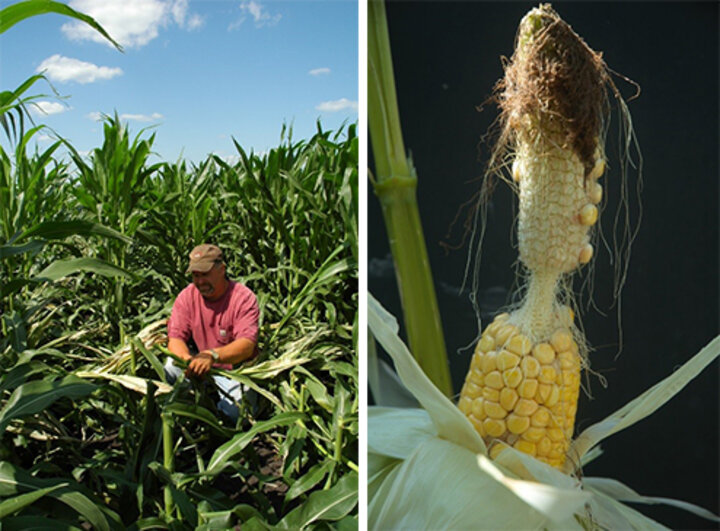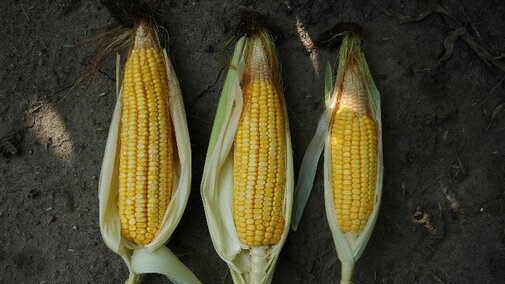
When it comes to corn, what’s normal and what’s not? From ugly ducklings to “comb overs” to barbell ears, Extension Cropping Systems Specialist Roger Elmore has seen a lot of “abnormalities” in corn over the years. He’ll discuss some of the more interesting examples and their causes at the Nebraska Crop Management Conference January 24-25 in Kearney. The conference features in-depth presentations addressing today's crop production challenges, university and grower research, and new technologies to aid in production and management.
Nebraska Crop Management Conference
Wednesday-Thursday, Jan. 24-25 in Kearney
Are you ready for 2018's crop production challenges?
Don't miss these in-depth, up-to-date presentations to get the answers you need to farm more efficiently and sustainably.
Agenda | Topics | Register Now

During almost 40 years as an Extension agronomist, Elmore has visited hundreds of grower and university fields to sleuth out the causes of unusual plant and ear formations (Figures 1-4), sometimes finding the causes in something that happened weeks before the effects were noticeable. Some abnormalities were caused by genetics, some were the result of management practices, and some were due to the environment. Still others continue to be a puzzle and likely were caused by a variety of factors, he said.
In providing listeners with tips and tools for identifying and addressing some of these problems, Elmore also explains the differences between corn “growth” and corn “development” and why it’s important to differentiate them.
“These terms are often confused, yet, knowing the difference is vital for good diagnostics,” Elmore said.
Nebraska Crop Management Conference Topics
Other conference speakers will address the challenges of disease, insect, and weed management, particularly with the latest RUP-dicamba products. Guest speaker Kevin Bradley, a professor at the University of Missouri, has studied dicamba reports across states and will speak on "The dicamba dilemma. Where do we go from here?" Nebraska Extension Weed Scientist Stevan Knezevic will address "The rise of multiple-resistance in Nebraska's weeds and effects of dicamba micro-rates on sensitive crops."
Other speakers will address improving irrigation efficiency, soybean nitrogen demand, and tools and management strategies for selecting cover crops and using long-term cover crops for grazing. Pesticide application training will also be available at the conference.
Extension Educator Brian Krienke will present research on the feasibility of sensor-based nitrogen fertigation management in corn. Fertigation offers a unique opportunity to apply nitrogen when the plant needs it most, but when should it be applied and at what rate to achieve optimal efficiency? Krienke reviews university research with crop growth models, sensors, and using field assessments and N applications.
Richard Koelsch, professor in the Department of Biological Systems Engineering, will explore the next steps in using Field to Market tools in Nebraska. Can measures of environmental performance in cropping systems have value for improving efficiency of cropping systems, reducing high cost inputs, and improving consumer perceptions of the stewardship ethics of farmers? By comparing performance factors of their farm and other farms, can Nebraska farmers identify opportunities for improvement? Learn more about this innovative program supported by the Nebraska Corn Board and Nebraska Extension.
Register Today
With 27 topics, most presented more than once, you’ll be able to create a program to answer your crop management questions. See the full slate of topics scheduled for next Wednesday and Thursday on the conference website and register now to save your seat.

